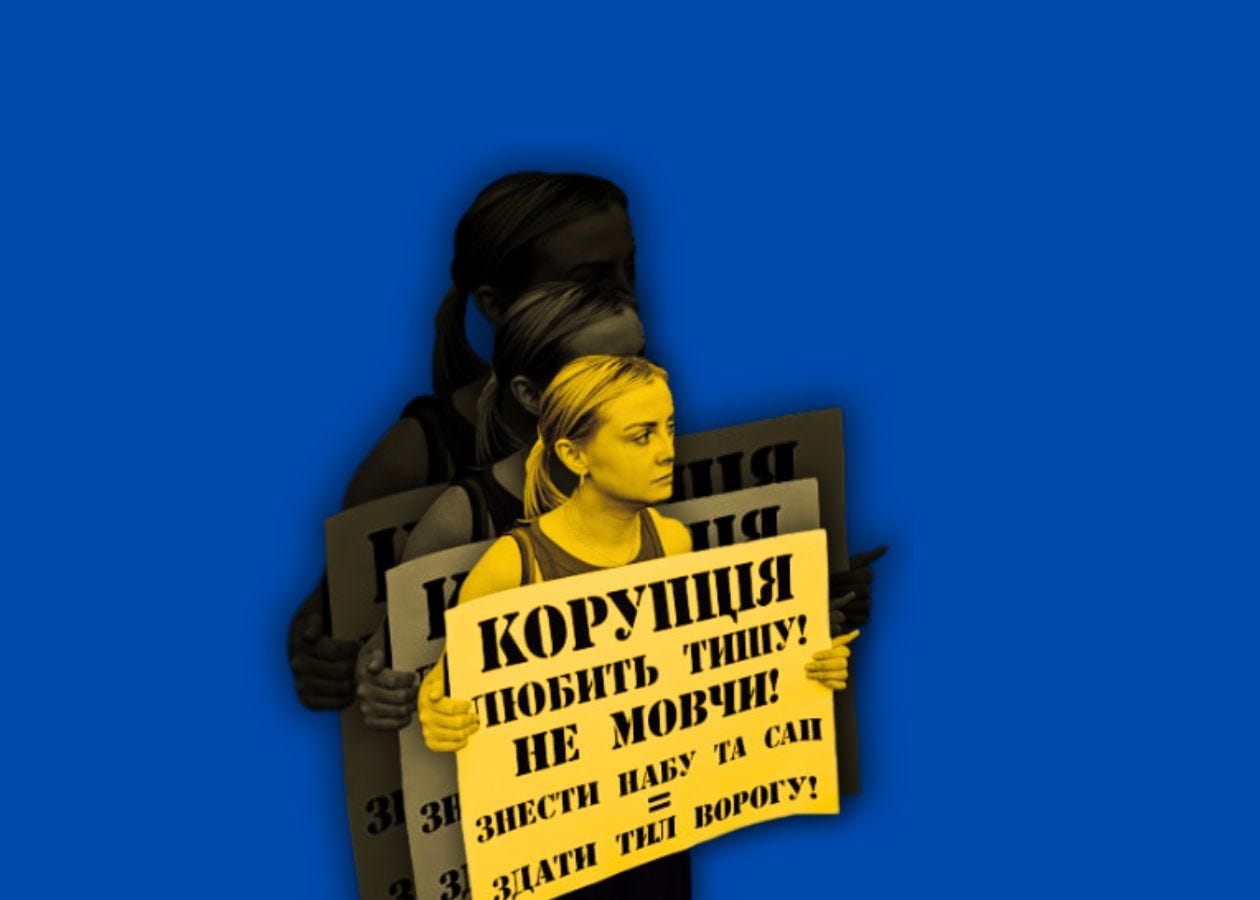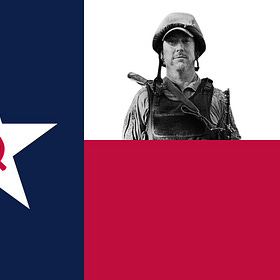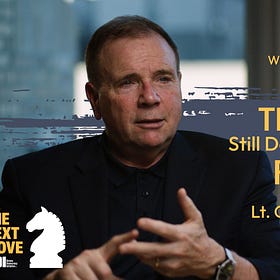Ukrainian Protesters Remind Us How to Fight for Democracy
In the middle of a war, thousands of Ukrainians stood up against corruption and for good government.
Uriel Epshtein is the CEO of the Renew Democracy Initiative
Earlier today, the Ukrainian parliament approved legislation restoring the independence of two anti-corruption agencies. Just a week earlier, President Volodomyr Zelenskyy had set out to strip those same agencies of their autonomy with another piece of legislation.
Talk about a quick reversal: The Ukrainian government puts out an ill-advised policy. Then the Ukrainian public reacts to it negatively. And then, rather than arresting, beating, or intimidating protesters—the government instead retracts that policy.
All in the course of a few days.
Can you imagine the US Congress changing tack so quickly?
There are some important lessons for Americans here, but first, some background:
On July 22, Zelenskyy signed legislation that asserted executive control over the National Anti-Corruption Bureau of Ukraine (NABU) and Specialized Anti-Corruption Prosecutor’s Office (SAPO).
Formed in 2014 and 2015 respectively, those agencies reflected Ukraine’s desire to consolidate its democracy after ejecting Kremlin-backed President Viktor Yanukovych in the Euromaidan protests. By then, Russia had already invaded the Donbas and annexed Crimea. Even at war, Ukrainians placed a priority on strengthening their institutions.
NABU and SAPO’s mission of rooting out graft and abuses of power is important to Ukrainians because millions of them know the alternative firsthand. The USSR is a not-so-distant memory in Ukraine, and the throughline of the country’s post-communist experience has been a tension between a prosperous, democratic future and a neo-Soviet one.
More from The Next Move
Ukrainians made a decisive break from that history when the country’s first post-independence president, Leonid Kravchuk, stepped down peacefully after losing re-election in 1994. (Compare this with Russia, where Boris Yeltsin used tanks and spetsnaz to resolve a constitutional crisis a year earlier. To this day, Russia has never had a democratic transfer of power.)
But the path forward has not always been smooth.
That Zelenskyy overstepped now is not an aberration; every Ukrainian leader for the past three decades has struggled with the authoritarian political culture left behind by centuries of Russian and Soviet colonization. And each time a leader went too far, the Ukrainian people held them to account.
In 2004, they rejected electoral fraud and Russian interference in the Orange Revolution. In 2013, they faced down Yanukovych. And now, in the face of the Russian invasion, they are still insisting upon good government.
Think about how remarkable that is.
Donald Trump kicked off his second term by summarily dismissing 17 inspectors general—the independent watchdogs who keep an eye on corruption within the federal government. Firing that many inspectors general in one shot is unprecedented and he did so without providing Congress proper notice, upsetting the separation of powers that’s been a hallmark of US democracy since the founding.
But there were no mass protests. No sustained opposition. For most Americans, that was all boring social studies stuff.
When Zelenskyy undertook a similar move, Ukrainians turned out by the thousands—in the middle of an existential war. The protesters risked exposing themselves to Russian missiles and bombers. We Americans have no excuse to be complacent.
To his credit, Zelenskyy responded quickly to public pressure—and calls from his allies in foreign capitals. Within days of submitting the original legislation, he reversed course, and submitted the new bill, which was passed today, giving NABU and SAPO their independence back. Like all leaders, the Ukrainian president has his flaws, but he’s no Putin. We must avoid any false equivalence as the Ukrainians have just once again demonstrated that their country is nothing like Russia. Kyiv belongs in the Free World even as disinformation agents like Marjorie Taylor Green try to blur the lines.
The Ukrainian people are willing to hold their elected leaders to account at the same time that they are making massive sacrifices to defeat an authoritarian aggressor. The least we can do is to protect our own democracy and give Ukrainians the means to defend theirs.
More from The Next Move:
Anti-Woke Americans in Russia Follow a Path Paved by Communists
If you’re fortunate enough to be born in a democracy, there’s a lot you can do before uprooting your family to an authoritarian state.
General Ben Hodges: What the West Still Doesn't Get About Russia
The former commander of US Army Europe offers a clear-eyed assessment of the war in Ukraine—and what it will take to end it on terms favorable to the Free World.







Excellent. I appreciate the reference to the US Inspector Generals fired by Trump in the first days. It was a clear signal for the upcoming lawlessness.
So heartening!
And such a dilemma. Always the worry that we have to fight authoritarians with one hand tied behind our backs, yet the concern that if we use the worst of the authoritarian methods, the authoritarians do, in effect, win.
Credit to Zelesnky for backing away from temptation.